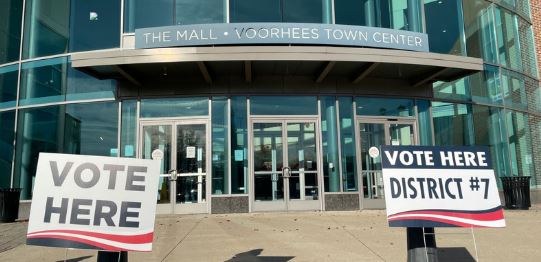As the 2022 midterm elections draw closer, voter frustration within the Republican Party has reached a boiling point, particularly in swing states like Arizona. With election integrity concerns at the forefront of political discourse, GOP voters are increasingly vocal about their discontent with perceived vulnerabilities in the voting process.
Key figures in this ongoing debate include Arizona Secretary of State Katie Hobbs, a Democrat, who has overseen various election-related controversies and disputes since the 2020 presidential election. On the GOP side, state party chair Kelli Ward has become one of the most outspoken advocates for election reforms, calling for tighter regulations and enhanced voter ID laws.
Republicans in Arizona have voiced concerns about the accuracy and transparency of voting systems, largely influenced by the aftermath of the contentious 2020 election. With the state’s pivotal role in the presidential race, many voters remain suspicious of how votes were counted and how some of the legal challenges were handled. Ward has been a key figure in rallying local Republican leaders to push for audits and further investigation into election practices, mirroring efforts that began in the wake of the 2020 election.
In response to these concerns, state GOP leaders are taking steps to enact stricter voting laws, including proposals for voter ID requirements and limitations on mail-in ballots. Many Republicans believe that these measures will help restore confidence in the electoral system, particularly in light of claims that the 2020 election was marred by fraud.
However, these efforts have sparked criticism from Democrats, who argue that they represent an attempt at voter suppression, particularly targeting communities that historically lean Democratic. Local civil rights organizations have expressed concerns that certain measures, like the restriction on mail-in voting, disproportionately affect minority voters. As a result, the debate over election integrity has deepened political divisions, further intensifying the partisan climate heading into the midterm season.
The GOP’s focus on election reform has also raised questions about the future of campaign messaging. Republican candidates are finding themselves having to balance the need to address election integrity issues while also focusing on other core campaign platforms like inflation, public safety, and border security. These key issues are expected to play a major role in the 2022 elections, especially in swing states such as Arizona, Georgia, and Pennsylvania.
As Election Day approaches, both parties will continue to engage in a high-stakes battle for control of the Senate and House of Representatives, with voter confidence and election security concerns remaining central to the GOP’s strategy.
January 15, 2022: Rising Inflation Forces GOP to Reassess Economic Messaging for 2022 Midterms
Location: Washington, D.C., USA
With inflation at a 40-year high, Republicans are strategically shifting their economic messaging as they prepare for the 2022 midterm elections. Rising consumer prices, particularly in essentials like food, energy, and housing, have emerged as central issues for the GOP, leading to an intense focus on the Biden administration’s handling of the economy.
The key players in this economic debate include President Joe Biden, whose approval ratings have taken a significant hit due to rising inflation and supply chain disruptions, and Republican leaders such as House Minority Leader Kevin McCarthy and Senate Minority Leader Mitch McConnell. McCarthy and McConnell have both made economic issues central to their campaigns, positioning the GOP as the party of fiscal responsibility and limited government intervention.
For Republicans, inflation has become a potent line of attack, as Americans increasingly express dissatisfaction with the soaring costs of everyday goods and services. The GOP has accused the Biden administration of exacerbating the inflationary crisis through its economic policies, particularly the $1.9 trillion American Rescue Plan, which Republicans argue led to excessive government spending and an overheated economy.
As prices continue to climb, Republicans are pushing for a return to policies that emphasize tax cuts, deregulation, and reducing government spending. McConnell has pointed to the GOP’s successful track record of economic growth during the Trump administration as evidence that their approach is better suited to addressing current economic challenges. He has called for a renewed focus on supply-side economic policies, including corporate tax cuts and deregulation, which he argues will help reduce costs for consumers.
The GOP’s message is resonating with voters, especially in key battleground states where inflation is hitting hardest. Polls show a growing sense of disillusionment with the Biden administration’s handling of the economy, and many voters believe that Republican economic policies would help lower prices and restore economic stability. Additionally, GOP candidates are emphasizing the importance of energy independence, arguing that the Biden administration’s focus on green energy initiatives has led to higher fuel costs and shortages in supply.
Despite the mounting pressure, the Biden administration is attempting to frame inflation as a global issue largely driven by the ongoing COVID-19 pandemic and supply chain disruptions. However, GOP leaders are steadfast in their belief that the administration’s policies are largely to blame for the current economic climate.
As the midterm election season heats up, Republicans are using rising inflation as a focal point to galvanize voters and strengthen their position for regaining control of Congress. The shift in economic messaging signals the GOP’s determination to capitalize on voter concerns about rising costs, marking a significant aspect of their strategy as the November elections approach.

